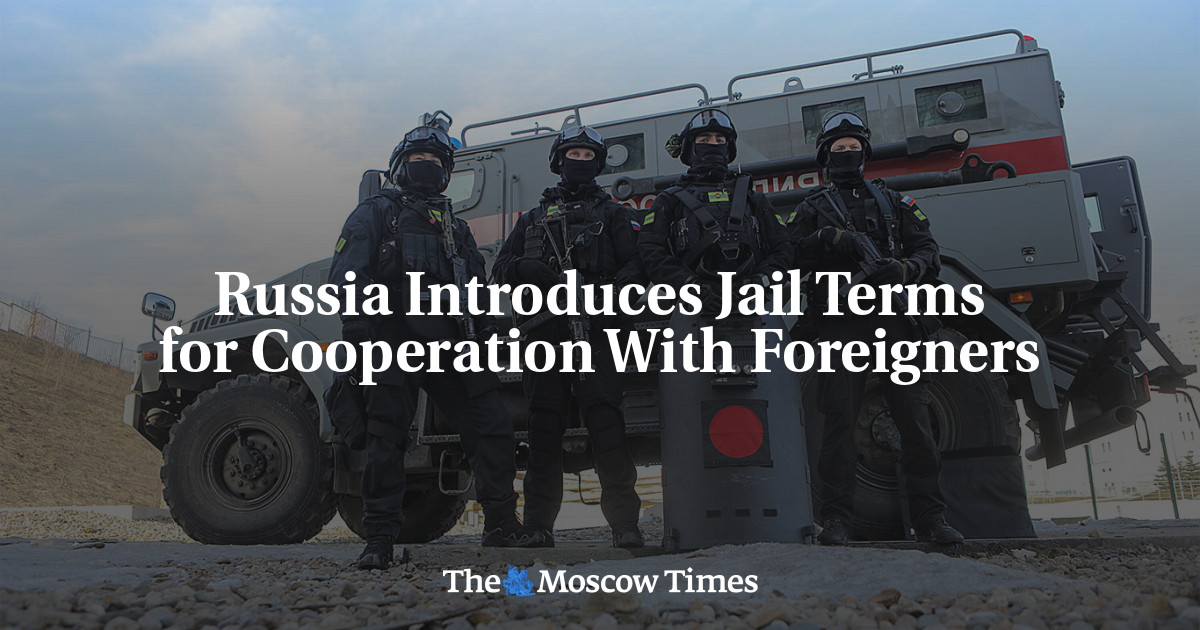
Russian society is reeling from a historic crackdown on dissent which has intensified since President Vladimir Putin sent troops to Ukraine on Feb. 24.
Rights activists fear the new legislation will be used to snuff out any last vestiges of dissent.
“The changes are an adequate and timely response to the challenges that our country is currently facing,” senior lawmaker Vasily Piskarev said in a statement released by the lower house of parliament.
Collecting, storing and transferring to the enemy information that can be used against the Russian army will be considered a form of espionage and is to be punishable by between 10 and 20 years in jail.
Putin’s decision to send troops to Ukraine has led to a further clampdown on freedom of speech and media in the country and sparked an exodus of foreign and independent Russian journalists.
Criticism of Russia’s military intervention in Ukraine has essentially been banned in the country, and the words “war” and “invasion” outlawed.
In March, Russia passed into law prison sentences of up to 15 years for spreading false information aimed at discrediting its military forces.